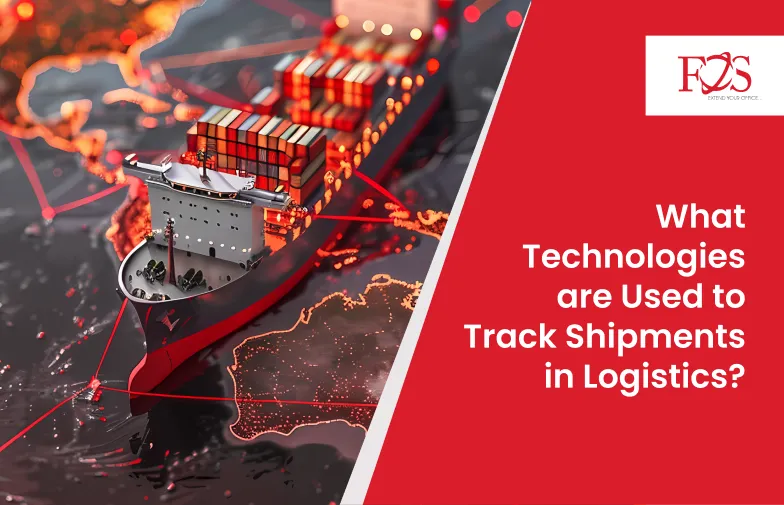Introduction
In logistics, the visibility of shipments in real-time is more crucial since it assists logistics firms in guaranteeing security and monitoring their consignments. This is especially important because proper tracking greatly reduces the turnaround time and can help minimize losses as well as increase customer satisfaction.
New technologies have made it easier for organizations to monitor and handle their consignments, making the process cheaper and more accurate. Starting with GPS and RFID and culminating with blockchain and IoT, these solutions offer incredible track-and-trace levels and process management. Now, let us explore the interesting features of shipment tracking technologies and discuss how they are transforming tracking in logistics processes.
Types of Logistics Tracking
Shipment Tracking – This enables tracking of individual shipments from the start to the final destination, giving information on the location of the shipment, estimated time of arrival, and any problem that may have been encountered.
Asset Tracking – Oversees physical property such as car fleets and stocks to optimize their use while minimizing their loss over the useful life.
Vehicle Tracking – Enables tracking of the location, speed, and route of transport vehicles in real-time for purposes of managing transport fleets.
Inventory Tracking – Maintains information on the quantities, storage locations, and transfers of products within warehouses to avoid stock-outs and overstocking.
Cold Chain Tracking – Controls temperature-sensitive products to ensure that they do not go above or below certain temperature levels throughout transportation and storage.
RFID Tracking – It employs radio signals in tracking items that are fitted with RFID tags thus facilitating identification and tracking without the need for personnel intervention.
Barcode Tracking – Using bar-coded labels and barcode scanners, the items can be followed through the various stages of the supply chain.
Parcel Tracking – Follows an individual parcel from the sender to the recipient, it is used widely in courier and post services.
Supplier Tracking – Monitors suppliers for performance and conformity to delivery schedules and product standards.
Route Optimization – Determines the best traffic paths the transport vehicles should follow to reach their destinations in the shortest time and with the least fuel consumption.
Reverse Logistics Tracking – Controls products returned by customers, the flow, and handling of such products.
Customs and Compliance Tracking – Responsible for customs compliance and tracking the status of the shipment as it goes through customs procedures.
Technologies used for Tracking Shipments in Logistics
Real-time shipment visibility is important. Technological advancements have greatly improved the ways used by firms to monitor and control their shipments. Here are some of the technologies commonly applied for tracking shipments.
GPS
GPS tracking involves the use of satellite systems to accurately locate a given consignment. This technology gives real-time position tracking, better path planning, and a more accurate estimated time of arrival (ETA). That makes it an indispensable tool for logistics businesses that require accurate record-keeping of the movement of goods.
RFID
RFID (Radio-Frequency Identification) implies the use of radio waves to capture information stored on tags affixed to objects. RFID technology is specifically beneficial for inventory tracking, the condition of perishable consignments, and global supply chain visibility. This technology will enable smooth tracking of the item throughout the entire logistics chain.
IoT and Sensor Technology
IoT and sensor technology are the processes of connecting physical objects to the internet to interact and accumulate information. Real-time environmental monitoring, in-transit asset monitoring, and predictive maintenance are made possible by this technology. IoT devices and sensors give important information in avoiding difficulties and improving shipment tracking.
Blockchain Technology
Blockchain guarantees immutable transaction history, enhances the level of openness, as well as minimizes the possibility of fraud and theft of shipments. Through blockchain, firms are in a position to improve the effectiveness of shipment tracking procedures.
Barcode Tracking
Barcode tracking involves fixed labels and scanners that capture information at different points of product distribution. It also makes tracking easier, improves the management of inventories, and decreases the likelihood of mistakes. Barcodes are one of the simplest and most efficient means for tracking shipments at different stages.
AI and Machine Learning
AI and machine learning are associated with designing machines that can carry out functions that would ordinarily be expected of human beings. In supply chain management, AI helps in predictions of the best approach to take while planning routes and helps in decision-making through data analysis while increasing the level of automation in logistics. They remain useful in the process of enhancing the effectiveness of shipment tracking within contemporary society.
Augmented Reality (AR)
Augmented Reality (AR) makes shipment information more visible and brings higher productivity thus providing right-time access to data. AR can help become a potent asset in improving the general mechanization of the business model since it possesses the potential to revolutionize the approach to logistics.

Conclusion
In conclusion, shipment visibility in real-time has been considered the most important. GPS and RFID together with IoT, blockchain, Artificial Intelligence, and Augmented Reality have changed the way companies monitor their shipments. Such developments promote increased precision, productivity, and protection in a way that gathers the improvement of the comprehensive supply chain. By adopting these technologies, businesses can meet their client’s needs effectively and be successful in international shipments.
Keep track of your shipments with FOS Desk, the newest shipment tracking technologies today to improve the visibility of your supply chains as well as the level of satisfaction of the customers.
